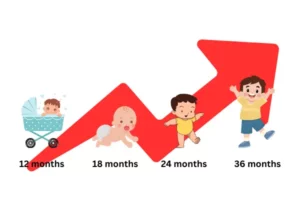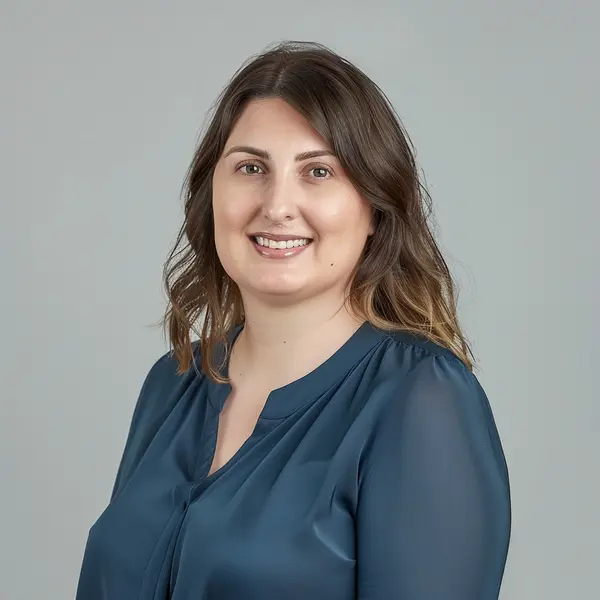

Many parents ask, “What’s normal?” regarding their child’s speech and language development.
Like other abilities and important milestones, the age when children pick up the language and begin speaking can differ. Understanding speech and language growth can assist parents in figuring out if there’s a reason to worry.
Kids grow at varying speeds, and figuring out if your child is simply a “late bloomer” or requires professional assistance isn’t always straightforward. We created this helpful guide to help you in understanding how a speech delay is diagnosed and treated, the causes of speech delay, typical symptoms and signs, and additional details.
Table of Contents
What Is Considered Delayed Speech?

Speech and language skills start with the faintest cooing sounds from a tiny infant. Over the course of several months, babies gradually start to babble, leading to one of the happiest experiences for a parent: hearing their child’s initial understandable words.
Usually, a typical 2-year-old can express around 50 words and form simple two-word sentences. By the time they turn 3, their vocabulary grows to as many as 1,000 words.
A speech delay occurs when a young child doesn’t achieve these usual speech milestones. It is a frequent developmental issue impacting up to 10% of preschool-aged children. Since every child develops on their own schedule, it can be hard for parents and caregivers to determine if their child is just a slow talker (and will soon start talking non-stop) or if there’s a serious issue needing professional help.
This is the reason why evaluation and diagnosis by a licensed speech-language pathologist, commonly referred to as a speech therapist, is extremely crucial. Speech delays can be successfully managed, and studies have demonstrated that earlier interventions result in improved outcomes.
Does Your Child Have A Speech Delay?

As previously noted, it can be challenging for caregivers to determine whether their child is simply taking more time to achieve a speech or language milestone or if there might be a more serious issue needing attention. Several common indicators and symptoms of speech delays are categorized by different age groups.
By 12 months
- Your child is not using gestures, like waving or pointing goodbye
- Has difficulty imitating sounds
By 18 months
- Your kid prefers making gestures over vocalizations (sounds) to communicate
- Has difficulty understanding simple verbal requests
By 24 months
- Your kid can only imitate speech or actions
- Doesn’t produce words or phrases spontaneously
- Can’t follow simple directions
- Says only a few sounds or words repeatedly and can’t use words to communicate more than their immediate needs
- Has a strange tone of voice (like raspy or nasal sounding)
By 36 months
- Your child doesn’t use at least 200 words
- Doesn’t ask for things by name
- It is hard to understand even if you live with them
What are the Causes of Speech Delay?

A speech delay may mean your child’s timetable is slightly different, and they’ll eventually catch up. However, delays in speech or language might also indicate something regarding your child’s overall physical and mental development. Here are several common underlying causes of speech delays.
Primary Speech Delay
Primary speech delays are typically not signs of another underlying condition. Speech-language therapy is helpful in most cases of primary speech delay.
Autism Spectrum Disorder (ASD)
Children on the autism spectrum can have a wide range of speech abnormalities in addition to speech delay. If you notice your child repeating phrases without making new phrases or struggling to start conversations, you should immediately speak to a speech-language pathologist (SLP).
Other signs of autism spectrum disorder in children may include reversal of pronouns and regression of speech and language. Children on the spectrum may also have impaired social interactions and communication skills. They may exhibit repetitive behaviors (circumscribed interests).
Children on the autism spectrum may benefit from an early intervention that emphasizes increasing communication and boosting language skills.
Cerebral Palsy (CP)
Cerebral palsy (CP) may cause speech delay in children. In such cases, speech delay is typically due to the lack of coordination of the tongue and jaw muscles. Hearing loss and coexisting anomalies in the cerebral cortex may also contribute to speech delay in children with CP.
Speech-language pathologists (SLPs) can help a child with cerebral palsy by introducing alternative and augmentative communication systems.
With extensive speech-language therapy, it may be possible for a child with cerebral palsy to improve their language and communication skills. Still, they may need help to improve their speech.
Childhood Apraxia of Speech
Childhood apraxia of speech is a less common disorder that affects a child’s ability to make sounds in the correct order. Parents may have difficulty understanding their child’s speech.
Children who communicate via gestures but show signs of speech delay may be at risk of apraxia of speech. They have the motivation to communicate and the ability to understand spoken language.
Dysarthria
Speech delay in children can also be a sign of dysarthria. This physical problem manifests as speech difficulties that range from mild to moderate to severe.
A child with mild dysarthria may exhibit slurred speech and talk in a low-pitched voice. Profound dysarthria may be characterized by the complete inability to produce any words.
Speech-language therapy can be instrumentally helpful for some children with mild dysarthria. However, for severe dysarthria in children below 3 years of age, speech-language therapy may not significantly improve speech and language skills.
Hearing Loss

If children lose their hearing ability before they learn to speak, it may cause speech delay. If your kid shows signs of speech delay and tends not to look at objects when you mention them or point them at them, immediately take them to an SLP.
Children with hearing loss should see an audiologist. Sometimes, hearing can be restored via minimally invasive surgical procedures. At other times, children may be able to hear and speak with a cochlear implant.
Intellectual Disability
Delayed speech can also be an indication of intellectual disability in a child. In this case, there may be a delay in the use of gestures and a generalized delay in reaching all developmental milestones.
Children with intellectual disabilities may show an overall deficit in comprehension.
Selective Mutism
Children with selective mutism fail to speak in specific social situations. They can understand instructions perfectly and talk at home but may speak outside school.
Children with selective mutism need the attention of a speech-language pathologist and a therapist. A psychologist or behavioral therapist can help the child overcome the barriers that keep them from speaking in certain situations.
Research shows that a combined intervention of speech therapy, cognitive behavioral therapy, family participation, and school involvement can help children with selective mutism.
The best approach is to recognize and treat speech and language delays early on.
If you have concerns about your child’s speech or language development, please reach out to us today at Precision Speech Therapy. Our team of experts can provide thorough assessments and personalized treatment plans for child and adult speech delays.





